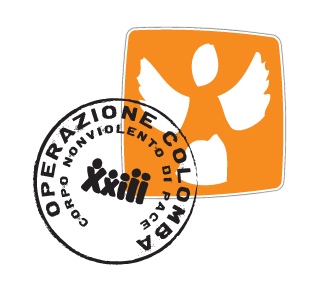Numb:
Beirut seems enveloped in a gray torpor, and with it those who live it.
The first few days we struggle to recognize the city, which is usually very hectic and chaotic.
The streets are empty and full of glasses on the ground, even in areas very far from the explosion.
People try to smile, but the weariness they drag on is perceivable.
And it infects us.
We do not make any particular efforts during the day, but when we return home in the evening we always feel so tired and we do not understand the reason why.
“We go around and see the signs of death, we smell her. Let's pretend that this is all normal, but it is not”.
S. tells us with shining eyes.
"We desperately need people outside the country to know what we are experiencing, how corrupt and unfair our government is."
The young people who had been in the square for months thought they had nothing more to lose, but this explosion managed to deny and surprise them.
Apathy and fatigue make no difference of nationality and affect everyone.
Everyone seems disillusioned and would like to leave. The Syrians who have been struggling for some time in this country, the Lebanese who continue to fall into poverty due to the enormous economic crisis.
A. was wounded in the leg, he told us that he was prepared during the bombing of the ghouta in Damascus, he knew how and where to position himself in the house when the bombs would arrive.
But not here in Beirut, not in peacetime.
This explosion was not expected by anyone, it caught everyone unprepared.
So, almost three weeks later, people are still disbelief and in shock.
Not that they did not react or respond, on the contrary.
The reaction and solidarity were immediate and of an exciting beauty.
But it seems that people go on living overwhelmed by the events, with the suffocating feeling to have no capacity to control their own lives.
W. spent so much effort since the first moment.
He was in the car during the explosion, and after realizing he was still alive he tried to understand what was happening.
He got out of the car and started walking, following the smoke and the destroyed houses until he reached the port.
He walked for about an hour and from that moment on he does nothing but go back and forth around the city as needed, in his car with damaged glass where he holds a ceramic cup which he fills with coffee before leaving the house and during some stops.
He is a big, tall man who never smiles in photos, but he always has sweet and reassuring words to say to everyone.
He has some words to say even now, when to our concerns he replies “I'm fine habibi, don't worry”.
W. spends all his energy for this city and its inhabitants, since the revolution broke out and he practically came home barely to rest a few hours.
It is difficult to believe that he is well, as perhaps no one in this country.
It is difficult to breathe hope, in this heavy air still dirty with dust.
But it is vital to look for it and we try to do it: where volunteers meet each other, under the rubble of the destroyed neighborhoods, inside the refugee camps.
Paoli



 OPERAZIONE COLOMBA
OPERAZIONE COLOMBA
